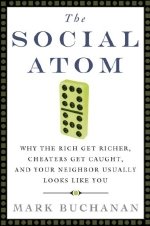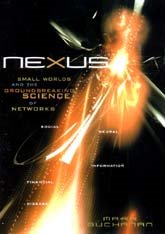David Stern, commissioner of the National Basketball Association, isn’t too happy with the recent revelation that N.B.A. referees appear to have a racial bias in the way they call fouls. He’s questioned the validity of the statistical analysis by Justin Wolfers, an assistant professor of business and public policy at the Wharton School, and Joseph Price, a Cornell graduate student in economics, which suggests that white and black referees call fouls preferentially against players of the opposite race. The N.B.A. insists that its own analysis (of different data) reveals no such bias, although other experts who’ve seen both analyses say that the Wolfers and Price study is more convincing.
But I wonder if Stern and the N.B.A. wouldn’t be better off with a different tactic. A finding of this kind may make for scandalous headlines, but it isn’t really all that surprising, and takes its place in an already sizable literature showing that racial bias often works more or less unconsciously, that even its perpetrators often remain completely unaware of it. The fact that it took sophisticated mathematical analysis even to identify the bias, and that neither N.B.A. fans nor players appear to perceive it, suggests that maybe the N.B.A. isn’t doing such a bad job (though not that they shouldn’t try harder).
Psychologists have demonstrated that even children as young as three years old already attribute lasting and special significance to skin color, which they see as more fundamental than clothing styles, for example, or profession. They’re not surprised that someone might change clothes or the kind of work they do, but do not consider it credible that someone might change his or her race.
Most adults seem to have similarly automatic responses to race, with built-in biases. A few years ago, for example, one brain-imaging study of adults found that both white and black subjects, when presented with faces of the other race, showed increased activity in the amygdala, a brain region that typically responds to stimuli that have emotional significance. The subjects, meanwhile, reported feeling no particular emotion in connection with the different faces. Another study, this one of white subjects only, found that those whose amygdalas were most active also scored highest on a standard test for racial prejudice.
These studies were and are highly controversial (what’s not in this area?), and the scientists behind them quite rightly argue that they should be interpreted with care. After all, having these unconscious reactions doesn’t mean that people will act on them.
Still, this evidence strongly suggests that racial differences influence human behavior at a very primitive and unconscious level. Hence, it’s hardly surprising that N.B.A. officials, making split-second decisions on rapidly moving events under tremendous pressure, might succumb – weakly, the statistics suggest – to some kind of automatic and unconscious bias.
That’s not to say that bias of this kind is acceptable, that it’s ineradicable and that we just have to live with it. Far from it. The point is that understanding our natural biases – and their sometimes counterintuitive origins – may ultimately give us a better chance to take measures to mitigate their damaging consequences.
For many years, psychologists thought that people categorize others automatically along three lines – by age, sex and race. Numerous experiments, including those already mentioned, seem to show as much. But six years ago, anthropologists Robert Kurzban, John Tooby and Leda Cosmides of the University of California, Santa Barbara, suggested that this idea has deep problems, at least when it comes to race. That’s because through most of evolutionary history, people were not exposed to other races. So there was no way for any kind of hard-wired racial sensitivity to evolve.
Instead, they argue, the experimental finding that people do categorize by race, automatically and rapidly, arises as a kind of accident. What our ancestors did need to be able to do – and there were potentially deadly consequences if they got it wrong – was to identify the groups or coalitions to which people belonged. Is the stranger walking into camp part of my tribe, or an enemy?
To make such decisions, the argument goes, people naturally latched onto whatever clues were available, including style of clothing or skin color. This would be little more than a nice theory if the three authors hadn’t also backed it up with some further experiments.
To test the idea, they had volunteers look at photos of blacks and whites, and manipulated cues that gave volunteers information about the peoples’ group affiliations, so that the apparent coalitions among them went not along racial divisions, but across them. In this case, they found, the power of racial categorization quickly decreased, as it was replaced by awareness of the true coalitional boundaries.
The conclusion was that racial awareness isn’t innate; group awareness is. Unfortunately, in today’s world, perceived coalitions often run along racial or ethnic lines, and so coalitional perception takes on the form of racial or ethnic perception.
A paradoxical element of this view is that racial discrimination emerges more or less from the same instincts that support natural group identification, which almost certainly played a huge role in helping our ancestors to form strong and cohesive groups. You’ve got to wonder, with these influences being so automatic, whether the N.B.A. is really doing worse than anyone else.
Perhaps bias in the N.B.A. has been discovered only because sports naturally generates the kind of data easily susceptible to mathematical analysis. Social researchers starved for good data naturally look for the low-hanging fruit first. The same influences may be far more pervasive, yet very difficult to demonstrate mathematically.
The really difficult question, for Stern and the rest of us, is what any organization or society can do about racial bias, given that it is so deeply rooted as to influence the behavior even of people who profess to be and truly believe they are fair-minded.
Thursday, May 17, 2007
Bias as usual? Or fair play?
Subscribe to:
Post Comments (Atom)




1 comment:
Cambridge Satchel SaleCambridge Satchel Company zobd Cambridge Satchel UKCambridge Satchel Sale mlth
Post a Comment